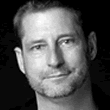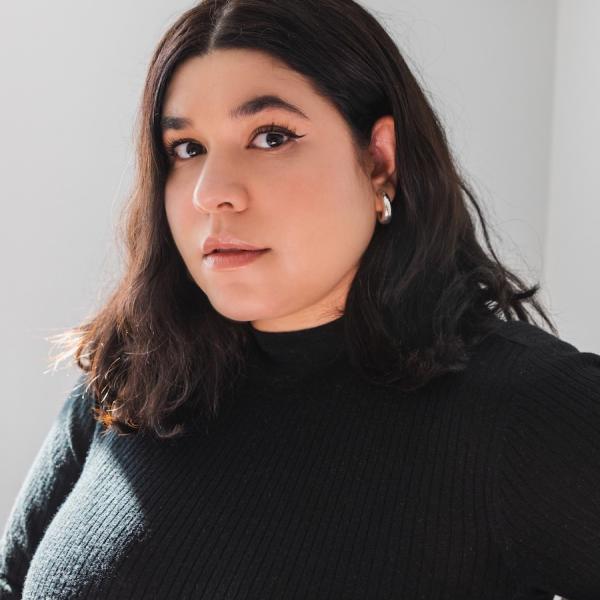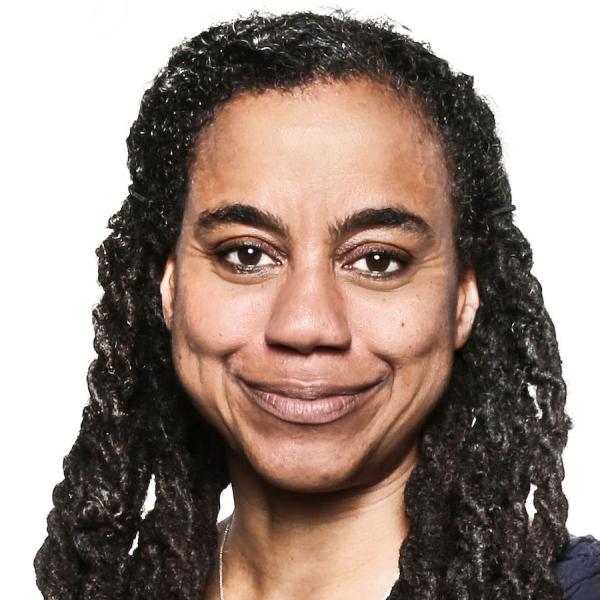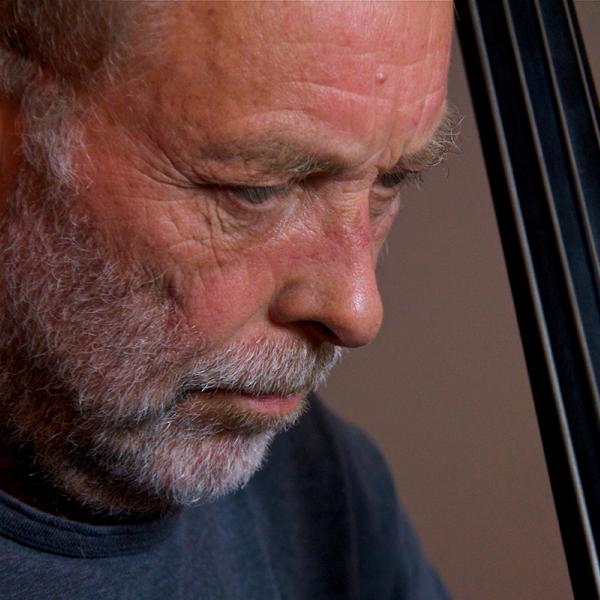Ed Herendeen

Transcript of conversation with Ed Herendeen of the Contemporary American Theater Festival
From Inana:
- Things disappear in war. Objects in museums vanish.
You care so much for these objects. What about the people?
- The objects are part of the people. They’re the deepest, hidden most secret part. They’re the best part and the most important part to protect.
You’re talking about love?
- Yes! I love them. I do.
And your statue? The one you care so much about. Did you send it to Baghdad?
- We sent a great many.
You said a great many people were concerned about it.
- We’re concerned about every artifact.
But you said it was special.
- They’re all …
Special to you.
- Yes.
Is that your secret?
That was an excerpt from the play, Inana by Michelle Lowe....Inana tells the story of an Iraqi museum curator’s attemot to protect his country’s art prior to the war. It’s one of the five pieces presented this season at the Contemporary American Theater festival at Shepherdstown. Welcome to Art Works the program that goes behind the scenes with some of the nation’s great artists to explore how art works.
I’m your host, Josephine Reed.
Just celebrating its 20th season, the Contemporary American Theater Festival is committed to presenting edgy modern plays in rotating repertory. it’s home is historic Shepherdstown, the oldest town in the state of West Virginia and this picture-perfect village oddly compliments the cutting edge theater presented at the festival. The brainchild of founder and producing director Ed Herendeen, Shepherdstown and the Contemporary American Theater Festival has become a destination for the adventurous who are drawn to bold, daring theater. I went to the festival and saw the play Inana, and then had the opportunity to speak with Ed Herendeen about the festival and contemporary American theatre. Here’s our conversation.
Jo Reed: Ed, first, let me congratulate you on your 20th anniversary!
Ed: Thank you very much. We’re very excited to have reached this incredible milestone of 20 years of producing new American work.
Jo Reed: I have to commend you. Twenty years and you haven’t done a revival yet.
Ed: Our mission statement is so narrowly focused. Our mission is very clear. We are dedicated to producing and developing new American theater. That’s it. That’s who we are. That’s what we do, so our mission drives everything that we do.
Jo Reed: I have to ask you Ed. You’re the founder of the Festival. How did it come to be? What’s the story?
Ed: It's an interesting story. And I was up at the Williamstown theater festival in 1990, 1991, when a college president from Shepherd College then, had this idea to start an Equity theater during the summer, in Shepherdstown on his college campus. And I was hired as a consultant to come down to work with them on how to negotiate a contract with Actors Equity and to go through, we spent about three or four days looking at the area, looking how close it was to one of the largest metropolitan areas in the country. And it seemed like a great fit in the summertime to have a professional theater so close to the Washington D.C., Baltimore metro area. And when it came time to deciding what kind of theater he was interested in, one of the things I was able to convince him of was that there was a critical need in the country for a home for the development and full production of new American plays. And he liked that idea. And without realizing it, he turned and said, “Well, why don’t you do it?” and I said, are you offering me a job? And he said, “Yeah. Why don’t you start it?” and I said, “Yeah.” So.
Jo: Ed, what’s the benefit doing theatre festivals. Why the festival model?
Ed: Well, one of the great things that we can offer is not only is Shepherdstown this beautiful historic village and a destination in itself, but it gives audiences an opportunity to come for a two-day period, and actually see five new American plays fully produced. And it's just a great opportunity for them to look at five different writers, five different voices, and to get a real view of the American landscape because all of these plays were written within the last year or two. And, you really get a breadth of the viewpoint of what five storytellers are looking at when they look at the American landscape. And you get to go in a rotating rep. You see actors in more than one play. You're all held captive in this beautiful town and there's an opportunity to constantly while you're here visiting, talking about the work through our lecture series, through our talk back, post show talk backs, through breakfast salons that we have in the morning. And then just naturally at the B and B’s, when people wake up and have breakfast, before they go to bed they're talking about the play. They wake up, they're discussing the play in the restaurants and in the pubs. And, so you have this entire atmosphere of art happening. And they get to see five plays that rotate throughout a two-day period.
Jo Reed: And what you try to present here is a total theatrical experience, as you say. Because you have lectures, there's a breakfast series with you, the artistic director, you had the playwrights giving talks and Q and A’s with the audiences as well. You're building relationship.
Ed: Absolutely. And thanks to the West Virginia Humanities Council, we do a Saturday afternoon lecture series where we have people come in and speak on some of the topics that they play raises. So, it's just a incredibly provocative in so many ways. You know, we call it “think theater” for a lot of reasons. We want you to think about theater but we also want you to think about what you just saw. And so it's the kind of theater that I believe creates a forum for debate, creates a forum for living conversation to take place.
Jo Reed: And, it also doesn’t do Shepherdstown any harm. Because it helps draw a lot of people to this historic town.
Ed: Absolutely. People from 33 states are visiting us this summer, and not including the District of Columbia so if it was a state, it’d be 34. So, people from all over America are making a destination. Sixty percent of our audience is coming from the Washington, Baltimore metro area. And you know, we believe that what we’re doing is the right thing. Because we believe that you know, we’re increasing the quality of life for the people that live in this community and come to visit this historic community. But it also has a huge economic impact on the region.
Jo Reed: And I would think that the other benefit of doing a festival theater, doing theater in repertory is that you get to share casts, within the various plays.
Ed: I've always been attracted to true repertory theater. And this was an opportunity to create one acting company, each summer we cast a new acting company based on the plays that we’re doing. And, it gives actors an opportunity to be in two roles, doing new work. To actually be developing two new plays. And the audience find the experience incredibly fascinating because they’ll see an actor in one role. Like, today’s play Inana that you saw. Um, those main actors now will, you know, go have dinner. And then they put on new costumes and go to a different space in the studio theater and will do Frances Ya-Chu Cowhig’s Lidless.
Jo Reed: You started with two plays 20 years ago and now you're doing five. Can you tell us how you built this wonderful theater festival?
Ed: Geez. I don't know if I can remember back that far. But it was always our intention and our long range strategic plan, is, our goal is to get to six plays in rotating rep, and now we’re at five. It was just a natural part of the growth. Audiences, it's something that I believed. You know, sometimes we hear that it's very difficult to get an audience to come to see a new play. And if you're only doing one new play in a season full of classics and revivals, or modern classics, you know, international dramas. If only one of them is a new play, often times we look at it as, “Oh, that's the play that might lose money. That’s the play that’s gonna be hard to market.” When you're only doing new work, it's very exciting. And I really believe that we have built an adventurous audience that’s coming here because it's new. Sometimes they don’t even know the names of the playwrights. You know, they don’t recognize them. You know, we've had playwrights like Sam Shephard and Lee Blessing and Richard Tresser and Joyce Carol Oates. But some of the writers are emerging writers and new voices in the American theater. So this work is very fresh, very new and I believe that the kind of audience that’s coming to see our work wants this experience of being, actually playing a vital role in the birth and in the development of a play. Because the audience is crucial at this early development for the playwright to see the audience, to hear them breathing, to hear them moving. To hear them laughing or crying, or whatever it is that audiences do. It's vital to the next step, when these playwrights leave Shepherdstown, our goal is that they leave with a better script.
Jo Reed: Well, for example, the line up in this season. You have five plays. You have two world premieres. But you also are committed to doing second production of plays. Talk about why that’s important.
Ed: Yeah. You know, I define “new” in a very broad term. This season’s a great snapshot of our mission, specifically. We have two world premieres and we have one play that’s so new, we couldn’t even negotiate the rights for the world premiere. The world premiere will yet to be done, maybe in the next two or three productions, somebody will negotiate the world premiere rights for Lidless. However, we’re still giving it its first full production. And it's gone through three drafts, just since we signed on to do it, you know. So the work was constantly changing. Inana’s an example of the second production. It's very difficult, writers tell me, to get a world premiere, to get a first fully produced production. But many writers have shared with me that it's even more difficult to get the second production. Because if theaters are only doing one or two new plays in their season, often times they really want the world premiere. And, once a play has had its world premiere, some theaters don’t seem to be interested in it. And we don’t have world premiere-itis at the theater festival. We believe in breathing life and continued life into a play, and we all know that just because a play has had its first production, it's not finished yet. Writers still need that next shot. And so we’re hoping that we’re giving writers an opportunity like Michele Lowe with Inana, and she came and saw, and made changes for our production based on the Denver production. So now she's had two shots at this play, and now the play can go out and go wherever it wants to. And she knows that we played a role in helping her develop that.
Jo Reed: Well, let’s talk a little bit about this season. Because I'm interested in first, how you choose the plays.
Ed: That's a great question. You know, it's really a gut response. You know, I have very close relationships that I've developed over the years with literary managers. They’ve come to know my tastes, they’ve come to know the kinds of work that I'm looking for. They know that we’re looking for dangerous work. We’re looking for provocative material. We’re looking for work that’s relevant, present, immediate. We’re looking for work that’s in all phases of development, you know. Very new work that hasn’t even had many workshops and certainly not a full production. And we’re looking for plays that have had a production maybe in a small venue, but now are ready to go on to another venue. But, what I do, is I read a lot of work. I start reading plays in the next two weeks. I try to have the season announced by January and I choose plays that hit me in the gut. That move me emotionally. That move me intellectually. And then I try to choose a season, you know, based on how many equity contracts we've budgeted for. So that I can find one equity company that can service five plays. And so it's, you know, kind of a great big giant puzzle.
Jo Reed: Well, let’s talk about this season.
Ed: Well, you just saw Michele Lowe’s Inana. It's kind of a political thriller. It's sort of set in a Hitchcockian kind of storytelling style. But the really big surprise that happens in this play is that it's a love story at its heart. It's a play about a museum curator who's trying to save and protect the artifacts and the antiquities in his museum, on the eve of the American invasion into Baghdad. They’re deeply committed – the hero of this play - to protecting the history, the culture and the heritage of his country. And Michele feels very deeply that in the course of one evening, they fall in love and save the world. So it's very idealistic in that sense. In rotating rep with Inana, on the same stage, and they’ll be changing over the scenery as we’re speaking, we have the world premiere of the Eelwax Jesus 3-D Pop Music Show. Which is kind of an alternative theatrical event. It's a really exciting and imaginative and inventive piece of music, where this group of people who live in an institutional day home, day room in a home somewhere in a large city are addicted to a daily television show And it's just sort of in a very inventive way, takes a look at this group of people and the television show that they watch. And we give a toaster away every night. So it's a lot of fun, has really just got that great beat. And it reminds me a lot of David Byrne and the Talking Heads music and things like that. So you know, it's got that sense of performance art quality to it.
Jo Reed: Do you think it’s easier to get edgy work produced in regional theatre rather than on Broadway?
Ed: I love New York. I'm up there at least once a month attending readings, and seeing. You know, I really think there is a tsunami of creative energy coming out of that city. And, especially, with new plays and what's happening in America. Maybe not just on Broadway. But, if you look, Broadway’s, over the last couple of years have had some terrific straight plays happening. And, you know, just recently David Mamet’s play Race was in New York. You know, there's a lot of good stuff happening. What I think is great, is also what's happening in the regional theater and happening around the United States. There's great theater in Chicago. There's great theater in Washington, D.C., and you know, count up how many theaters there are in Washington now and count up how much new work is being done around the country. So, I think this is a really exciting, even with the economic difficulties that we’re facing, I think the American theater is going through a very exciting time. And, while New York is not the only place, there's so much great theater happening around the country. I mean, it's tremendously expensive to produce theater. Especially in a large city like New York. One of the things that we’re proud of here is that you can see five plays almost, for the price of what it costs to see one large Broadway show, and park for free here. You know, so we made a real attempt to try to keep our ticket prices affordable and accessible. And we do pay-what-you-can previews, so people can come to the first previews that we’re doing here and see plays for as low as a penny. It's important to us, because of our geography being in this very, what I call, semi-rural West Virginia. So close to a large city, but at the same time that we’re reaching out to the people in our own community, which in many cases, this may be the first professional plays that they have ever seen. You know, when we look at the eastern panhandle of West Virginia, and then to develop an audience, a very adventurous audience of people who are craving this, to be a part of something new. A part of the birth of a new play. And to maybe make it as affordable as we can. And here we are in the oldest town in West Virginia doing five of the newest plays in America. And to me that’s just a real thrill.
Jo Reed: And, you wear many hats. How many of these plays did you direct?
Ed: This season I directed three of the plays, and then Laurie Kepling a fabulous director, directed Breadcrumbs and Max Baker directed the Eelwax Jesus 3-D Pop Music Show.
Jo Reed: So that’s a lot of juggling for you, no?
Ed: Yeah. But, you know, the cool thing about starting your own theater is you get to do what you want to do. And you know, I started the theater because this is what I want to do. I want to direct new work.
Jo Reed: Okay, so finally Ed, what do you see, look ahead, like, three years. What do you see for Contemporary American Theater Festival?
Ed: You know, it's a great question. Because I have an insatiable appetite, and as I see hope in the economy getting better, you know, that’s only going to increase our opportunity to continue to do more ambitious work. Our goal, our strategic plan right now, has us planned to do six new American plays in rotating rep, and to extend our season, you know, by a few more weeks. We’d like to play now, six weeks. We’re playing at four. And maybe, one of the goals that we really do see in the off-season is more developmental work, in terms of readings and workshops and actually ultimately creating a very nontraditional playwright mentor program. To start a two year, perhaps, writing program for playwrights.
Jo Reed: Well, we look forward to it. Thank you.
Ed: Thank you for having me. I enjoyed it.
Jo Reed: That was author Ed Herendeen founder and producing director of the Contemporary American Theater Festival in Shepherdstown, West Virginia. You’ve been listening to Art Works, produced at the National Endowment for the Arts. Adam Kampe is the assistant producer.
The music is “Annibelle June” by Abigail Washburn and Bela Fleck.
The Art Works podcast is posted every Thursday at www.arts.gov. Next week, Julia Alvarez discusses her historical novel, and Big Read selection, In the Time of the Butterflies.
To find out how art works in communities across the country, keep checking the Art Works blog, or follow us @NEAARTS on Twitter. For the National Endowment for the Arts, I'm Josephine Reed. Thanks for listening.
Ed Herendeen talks about founding and sustaining a theater festival committed to supporting bold, daring new works for the stage. [18:27]




